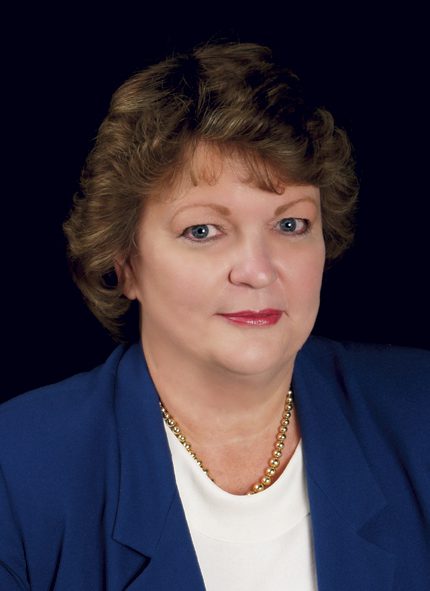FOCUS ON SECURITY

Specialty Lines Markets
FOCUS ON SECURITY
Active shooter incidents may be creating a hardening market in the sector
By Lori Widmer
Security is now an industry that uses the term “soft target.” For security firms and their insurers, probability and frequency have combined to create what many are deeming a hardening market.
A large part of the reason for that hardening can be traced to active shooters.
With approximately 334 mass shootings in 2018 according to the Gun Violence Archive and the FBI reporting 282 active shooters between 2000 and 2018, it’s clear that the frequency of shootings is rising. Security firms that place guards at soft targets—schools, bars, malls, hospitals, and other vulnerable locations—are increasingly tasked with preventing potential mass violence.

“Active shooter coverage, which is being sold on a stand-alone basis, will affect the industry going forward (due to litigation).”
-Rick J. Lindsey
President, Chairman, and Chief Executive Officer
Prime Insurance Company
The exposure for security firms also is rising. In an active shooter situation, Rick J. Lindsey, president, chairman, and chief executive officer of Prime Insurance Company, says that both a restaurant or bar and a security firm could be subject to litigation. He says his company provides general and professional liability and active shooter coverage with up to $10 million in limits or greater with facultative support. “Active shooter coverage, which is being sold on a stand-alone basis, will affect the industry going forward (due to litigation),” he says. It’s an area of concern for not only the security firms themselves but also for their clients, he adds.
Yet for many in the industry, that reasoning does not mesh with their own experience. “Committed underwriting discipline paired with rational behavior during this soft market cycle are required to maintain rate integrity and to avoid the pitfalls of pricing risks below market, as losses will eventually catch up to overall results,” says Marc Katz, principal of The Mechanic Group. “This is especially true in the private security space. We see signs of cracking in the security guard insurance program marketplace, with some carriers exiting and some security programs enforcing mandatory rate increases on their books of business. It has always been our goal to reduce drastic market swings that occur during soft market cycles. We believe our firm (now a division of Specialty Program Group LLC) is in a good position to help brokers nationwide navigate during this period of market uncertainty.”
Karen Izzo, president of Izzo Insurance Services, which handles multiple exclusive workers compensation market offerings, says that at least for workers comp, the story is decidedly different. “Throughout the year we have seen significant rate reductions in most states. In several states our insureds have seen as much as double-digit rate decreases,” she says.
Lindsey says the pressure put on the industry by the plaintiff bar is in part to blame for some carriers leaving the market. He says that lack of commitment to the industry often leaves agents and brokers working harder to locate coverage in a tightening market. Carriers that are competing on price, he says, are finding such methods untenable. Hence their exodus from the market as pricing increases.

“We do not write accounts that provide security for cannabis exposures, but we have seen several workers compensation loss reports reflecting guard fatalities at both cultivation sites and dispensaries.”
-Karen Izzo
President
Izzo Insurance Services
Cyber, claims, and coverage trends
Carriers also leave the security space when emerging risks heat up. Izzo says one of those risks involves cannabis. “We do not write accounts that provide security for cannabis exposures, but we have seen several workers compensation loss reports reflecting guard fatalities at both cultivation sites and dispensaries,” she says.
Because cannabis is illegal at the federal level, Izzo says dispensaries often have large amounts of money on site. “The combination of cash and drugs creates an extremely dangerous work environment,” she says.
Still, the main claim drivers for security firms continue to be events such as detainments and slip-and-fall injuries, according to Katz. “Detainments are a common occurrence with regard to general liability claims,” he says. “Agents and brokers can encourage security guard insureds to invest in training employees to verbally de-escalate high-stress situations.
“Ensure that employees know the post orders for their sites so they know what the appropriate protocol is when dealing with a shoplifter or an unruly visitor. Brokers can increase their value by offering contractual risk management services and post order reviews to restrict unfavorably broad wording and increased liability for an insured.”
“Slips, trips, and falls continue to be the most common cause of workers compensation claims for security guards,” adds Katz. “Employees need to be reminded to stay alert and be aware of their surroundings while on patrol. Encourage guards to walk only on sidewalks/pathways. Avoid shortcuts through lawns or gravel areas that are not meant for pedestrian traffic. Our workers compensation MGA carrier partners offer safety and risk management materials to help security firms manage risk.”
Izzo concurs, saying the most frequent and severe workers comp claims she sees are of the trip-and-fall variety. Her company writes a large book of preferred security guard companies for retail agents, and that’s the most common claim, she says. She recommends that firms require their guards to familiarize themselves with client site surroundings. She also advocates the use of slip-resistant footwear. “One of our carriers has an arrangement with a third-party vendor to provide non-slip footwear at reduced pricing, and it is available on an installment basis through payroll deduction,” says Izzo.
Then there’s the cyber exposure. While some experts believe it isn’t a pressing issue in the industry, others aren’t convinced. According to Izzo, the security firm industry would do well to pay attention to their cyber exposures. “Cyber affects every industry, especially when reporting is done directly into the client’s database,” says Izzo.
Katz agrees, saying the cyber liability market is on the same trajectory as the D&O/EPLI market was nearly 20 years ago. “Both (D&O and EPLI) products were introduced with limited market availability, were priced for larger risks, and brokers were hesitant to learn more about the exposures and coverages. We have reached the point at which the cyber market provides broader coverage, is accessible to both small and large risks, and applications aren’t as daunting to complete. Cyber is a natural cross-sell to insureds.”
Katz’s company is backing up its belief that cyber is a threat with its newly released cyber liability add-on coverage, which is attached to the company’s general liability (E&O) MGA program.

“Detainments are a common occurrence with regard to general liability claims. Agents and brokers can encourage security guard insureds to invest in training employees
to verbally de-escalate high-stress situations.”
-Marc Katz
Principal
The Mechanic Group
Advice for agents and brokers
Understanding unexpected exposures, says Izzo, is where agents and brokers can bring value to their security firm clients. “Retail agents can best serve their security clients by taking the time to thoroughly understand the security company’s client profile and operations,” she says. “We are able to get the best pricing for guard companies when the retail agent does a good job of presenting the operations of their clients with fully completed applications, currently valued loss history, and a good narrative describing operations.”
Lindsey recommends that agents and brokers make their insureds aware of the issues, particularly in the active shooter scenario, and teach them that there is a right way to approach the risk. “With every exposure, you focus on frequency.”
Reducing the number of claims, he says, starts with the insurer doing its own due diligence. His company tries to keep claim incidence down by initiating an underwriting call with every prospect. “We discuss the standards in their business and what they’re doing to mitigate some of the risks.”
Lindsey says it’s vital to have a strong partnership among the insured, the broker or agent, and a committed insurer. Security firms, he says, “need a market that will give them the solution they need, which is an all-in-one solution, and the commitment to stick with it and fight the lawsuits that are unfortunately going to happen.”
For Katz, the greater need of security firms is contractual risk management assistance. He recommends that brokers offer these services and reviews, “which help limit unfavorable contract language, broad descriptions, and increased liability being passed on to the insured.”
For Lindsey, the focus should be on reducing risks. “Security firms become a target when it comes to claims. They can reduce claims with training and diverting problems before they become claims. Don’t let things escalate.”
For more information:
Izzo Insurance Services
www.izzoinsurance.com
The Mechanic Group
www.mechanicgroup.com
Prime Insurance Company
www.primeis.com
The author
Lori Widmer is a Philadelphia-based writer and editor who specializes in insurance and risk management.











